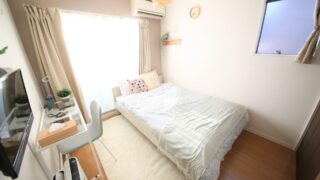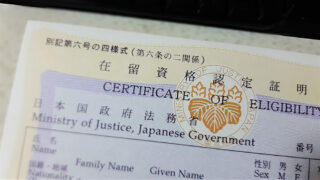In order to obtain a business management visa, it is necessary to secure an independent office to operate the business concerned.
When a Japanese person establishes a company and sets up an office, he/she is free to use his/her home and office as his/her office without any particular restrictions, but when a foreigner establishes a company to obtain a business management visa and applies for a business management visa, certain restrictions apply, However, when a foreigner establishes a company to obtain a business management visa and applies for a business management visa, there are certain restrictions that must be observed.
Explanatory Video] Business Management Visa: Terms and Conditions of Office Contract
Business Management Visa] Office Requirements
There are two requirements for obtaining a business administration visa
- Have an independent office to conduct business in Japan
- The office must be capable of continuing to operate the business
In order to obtain a business administration visa, the above two requirements must be met.
In other words, under (1), a virtual office or a home office (with some exceptions) is not considered an independent office, and under (2), a business is not considered to be continuously operated if it uses space leased for a short period of time on a monthly basis or uses a stall that can be easily disposed of.
|
Independent Office |
symbol used as a placeholder (either because a number of other words could be used in that position or because of censorship) |
This is not a problem because independent parcels are leased and also because office contracts are generally for one year or longer. |
|---|---|---|
|
Home and office (Condominiums, etc.) |
×x-mark (used to indicate an incorrect answer in a test, etc.) |
In principle, a home-cum-office does not meet the requirements for a business administration visa. |
|
Home and office (Detached house) |
weak |
The office and residence must be clearly separated, such as office on the first floor and residence on the second floor. |
|
Rental Office |
symbol used as a placeholder (either because a number of other words could be used in that position or because of censorship) |
This is possible if a separate space is available. In other words, rent a private room. |
|
Virtual Office |
×x-mark (used to indicate an incorrect answer in a test, etc.) |
A virtual office does not meet the requirements to obtain a business management visa because it does not provide independent space. |
|
Subleased office |
weak |
If the lease agreement contains a clause prohibiting subleasing, it is not allowed. Therefore, it is essential to check the contents of the lease agreement when registering a subleased office. |
|
Food Stalls and Kitchen Cars |
×x-mark (used to indicate an incorrect answer in a test, etc.) |
It is not recognized that the business will continue to operate. |
Points to keep in mind when signing an office contract
In addition to securing a property that qualifies as an office as described above, the following two points should be considered when signing a contract for an office or store
- The name on the office contract must be in the “corporate name”.
- The purpose of use should be “business use”.
If the contract is signed in the name of an individual or for residential use, the office is not considered to be properly secured.
So, when signing a lease agreement for an office or store, the above two points should be taken into consideration.
Cases】Cases in which a case was approved as an office and cases in which a case was not approved as an office.
The following are actual cases of past applications that were approved as an office and those that were not.
Cases accepted as an office
Case 1
A applied for permission for change of status of residence to operate a private restaurant in Japan, and although the purpose of use of the property used as an office was set as “residence” in the lease contract, a special agreement was concluded with the lessor to allow use of the property as a “company office” and a business office was secured. The property was deemed to have been used as a “residence”.
Case 2
B applied for a certificate of eligibility to engage in the import/export and processing/sales of marine products in Japan, and while the head office was the residence of a director, he rented a property owned by the Chamber of Commerce and Industry as a branch office, so his business office was recognized as secured.
Case 3
C applied for the issuance of a certificate of eligibility to establish a joint stock company in Japan and to operate a sales business. The entrance to the company office and the residential area were separate, and a sign indicating the name of the company was placed at the entrance to the office. In addition, it was confirmed that the office was equipped with office equipment such as a personal computer, telephone, office desk, and copy machine, and that the business was being operated, and the office was deemed to be secured.
Cases not accepted as an office
Case 4
D established a limited liability company in Japan and applied for permission to extend his period of stay to engage in the business management of the said company, but when the business office was investigated because it appeared to be D’s residence, there were no signs at the mailbox or entrance to clarify the location of the business office, etc. In the room, there were no facilities or equipment necessary for the business operation. In the room, there was no equipment or fixtures necessary for business operation, and there was no employee payroll or attendance record, and there were only daily commodities in the room.
Case 5
E applied for a certificate of eligibility to establish a limited liability company and operate a general sales agency in Japan, but from the submitted documents, it was thought that the place of business was a residence.
In addition, since the residence was not equipped with office equipment, etc., but only furniture and other furnishings for general daily living, it was not considered that a place of business had been secured.
Case 6
However, the submitted documents showed that the business office was not in the name of the corporation or the manager, but in the name of the employee, and that the employee was using the office as his/her residence, and that the utility bills were also paid in the employee’s name, and that the consent of the lessor to use the said property for purposes other than residence could not be confirmed. The utility bills were also paid in the name of the employee, and the landlord’s consent to the use of the property for purposes other than residential use could not be confirmed.



















































